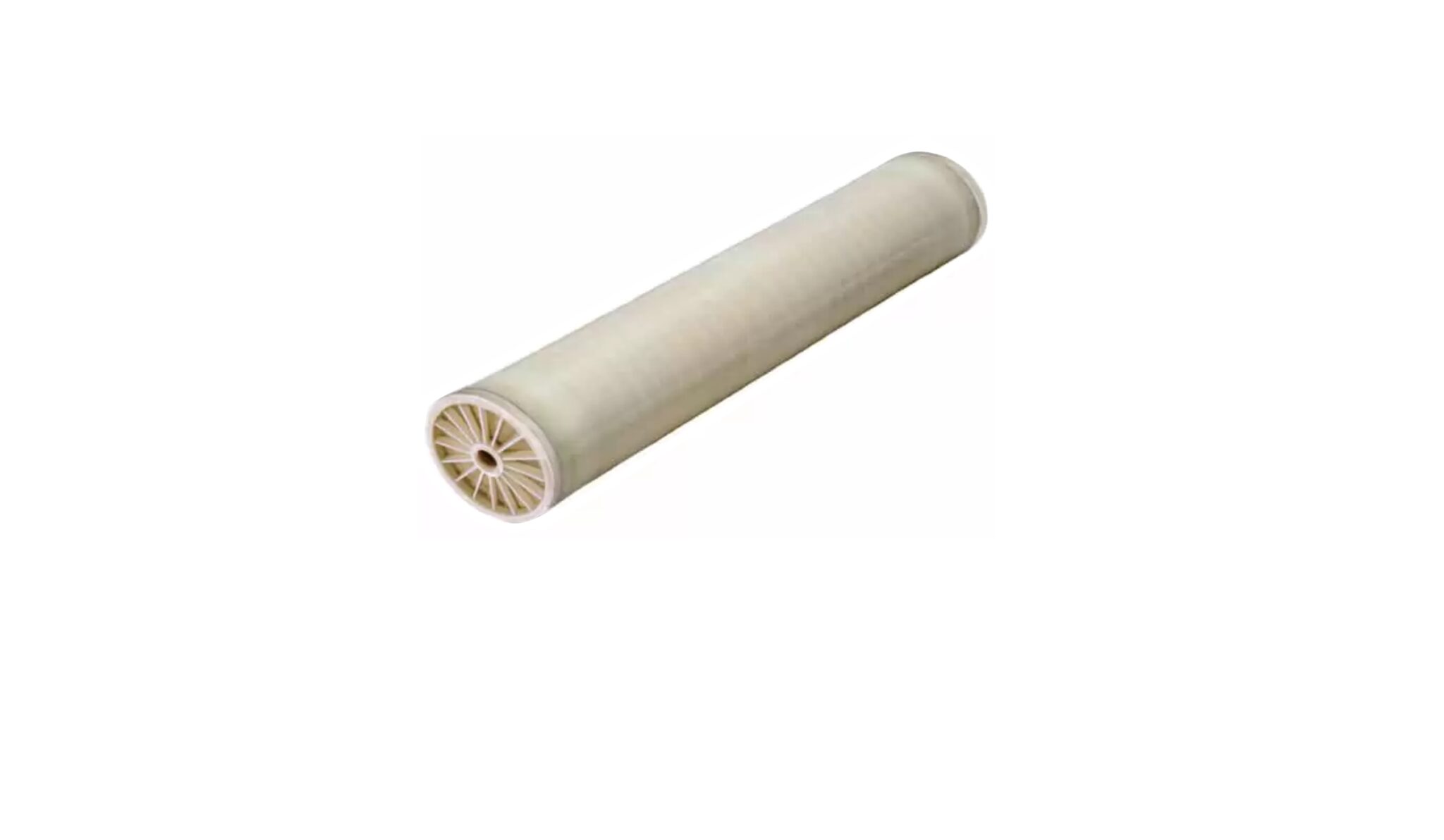The BEV RO Series spiral wound membranes are engineered to provide beverage plants production water with a high degree of total dissolved solids (TDS) removal at several different levels of energy requirement. TDS removal is often required when producing purified water, teas, very low and sodium free products, and carbonated soft drinks. Each of the BEV RO Series models will produce treated water with lower levels of hardness, alkalinity, sodium, and chloride. For lower TDS feed water, the low energy (LE) or ultra low energy (ULE) options are available to reduce energy consumption and carbon footprint.
All of the BEV RO Series elements have NSF/ANSI/CAN 61 certification.
Features of the BEV RO Series include a cage design that eliminates the stagnant zone associated with industrial fiberglass reinforced plastic (FRP) elements and their brine seals, which can act as a site for bacterial growth. This design also offers less pressure resistance than an industrial FRP element, resulting in lower brake horsepower and substantial energy savings.
Typical Operating Pressure:
BEV-RO-CG: 200 psi (1,379 kPa)
BEV-RO-LE-CG: 110 psi (758 kPa)
BEV-RO-ULE-CG: 50-100 psi (345-690 kPa) (5)
Typical Operating Flux:
BEV-RO-CG: 10-20 GFD (15-35 LMH)
BEV-RO-LE-CG: 10-20 GFD (15-35 LMH)
BEV-RO-ULE-CG: 13-23 GFD (22-39 LMH)
Maximum Operating Pressure:
BEV-RO-CG: 600 psi (4,137 kPa)
BEV-RO-LE-CG: 400 psi (2,758 kPa)
BEV-RO-ULE-CG: 250 psi (1724 kPa) (5)
Maximum Temperature:
Continuous Operation: 122°F (50°C)
Clean-In-Place (CIP): 122°F (50°C) (6)
Minimum Crossflow: 30 gpm (6.8 m3 /hr)
pH Range:
Continuous operation: 2.0-11.0
Clean-In-Place (CIP): 1.0-13.0 (6)
Maximum Pressure Drop:
Over an element: 12 psi (83 kPa)
Per housing: 50 psi (345 kPa)
Chlorine Tolerance: 1,000+ ppm-hours, dechlorination recommended
Feedwater: NTU < 1 SDI15 < 5

